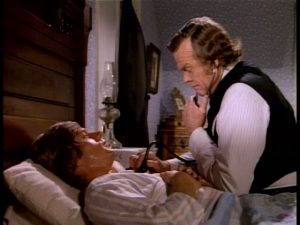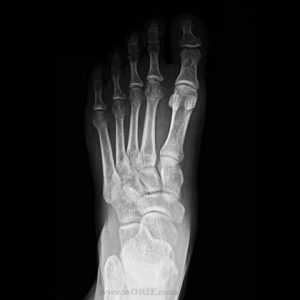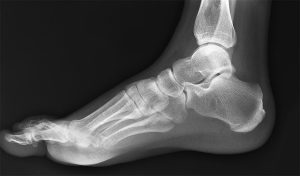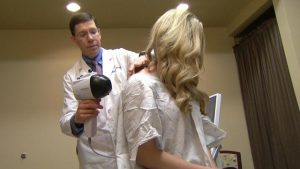When I was young I trusted doctors implicitly. Perhaps I was influenced by shows like Gunsmoke, Star Trek, and The Andy Griffiths Show, but I idealized them like they were all television country doctors, who saint-like, devoted their lives to the health of their patients. Only after a regime of medical care did I realize the truth of both of our situations was somewhat different.
television country doctors, who saint-like, devoted their lives to the health of their patients. Only after a regime of medical care did I realize the truth of both of our situations was somewhat different.
I rarely went to the doctor when I was young. Once I had some stitches when I cut open my leg with an axe, some more stitches from a school ground fight, had some warts removed by liquid nitrogen, and when I was very young, an incident I have only the vaguest memories of, I had my tonsils removed. I thought little about questioning my doctors in those cases, for they spoke with the assurance I had learned to associate with knowledge and power and in any case, I was young and naïve.
I was in university when I ran down a flight of stairs to fetch something from my room to show my waiting friends, and landed on the side of my ankle when I negotiated the last few steps. The bottom steps turned slightly to enter the hallway, and I was going full tilt when I sprained my ankle. I grabbed the banister to arrest my fall, and then limped to my room, fetched the item I wanted to show, and limped and hopped back upstairs. My efforts to fetch the item were wasted, since my friends had become distracted by the more recent event. I pulled down my sock at their request and showed them the injury, and as it began to swell I listened to their warnings.
I had so rarely gone to the doctor in my life that I thought of it as largely unnecessary when someone was healthy, but at this moment I was surrounded by hypochondriacs. My girlfriend began  the plaint, saying that I might have chipped the bone or broken a metatarsal, and my other friend, who ran to the doctor at the slightest provocation, chimed in with his own fears and worries. Even the other two expressed concern and suggested that I go to the doctor. My arguments to the contrary, for I had already tested the bones at the bottom of the stairs by walking on the ankle briefly. It hurt, but the pain from walking on a broken ankle is of a very different kind altogether, so I believed it to be a sprain and I had had them often enough that I knew some rest and time would cure it.
the plaint, saying that I might have chipped the bone or broken a metatarsal, and my other friend, who ran to the doctor at the slightest provocation, chimed in with his own fears and worries. Even the other two expressed concern and suggested that I go to the doctor. My arguments to the contrary, for I had already tested the bones at the bottom of the stairs by walking on the ankle briefly. It hurt, but the pain from walking on a broken ankle is of a very different kind altogether, so I believed it to be a sprain and I had had them often enough that I knew some rest and time would cure it.
Eventually they eroded my sense of independence, and I agreed to take the bus to the hospital.  There, after waiting for some time, an x-ray technician twisted my ankle further, in order to take an x-ray, and then I was able to see a doctor. Quite understandably, given a busy emergency room, the doctor was brusque and rushed in his dealings with me. In two minutes, he sprayed my foot with iodine antiseptic, shaved what hair I had, wrapped my entire foot in Elastoplast bandage, and told me to stay off my feet.
There, after waiting for some time, an x-ray technician twisted my ankle further, in order to take an x-ray, and then I was able to see a doctor. Quite understandably, given a busy emergency room, the doctor was brusque and rushed in his dealings with me. In two minutes, he sprayed my foot with iodine antiseptic, shaved what hair I had, wrapped my entire foot in Elastoplast bandage, and told me to stay off my feet.
With my triumphant girlfriend, I took the bus back home and limped around for a few days with the help of my friend’s cane. Two days later I was walking, but before long my ankle began to swell inside the bandaging. I had taken the bandage off by this point, but the mark where it had been stood out as my ankle became larger than it had been when I had originally gone to the doctor. Suspecting an allergy and still trusting the medical system, I went back to a different doctor who was working in emergency care and they examined my foot. They proposed that I might be allergic to the spray, although they acquiesced when I pointed out the neat lines which demarcated where the tape had ended. Few people can spray in such straight lines and doctors are not among them. That doctor showed a bit more attention to my plight, for she was not nearly as oblivious to my discomfort and as attentive to her own schedule as the first one, but she also, like him, thought more about the puzzle of my problem than my ease.
Since it seemed to be an allergy to Elastoplast she proposed that we test the hypothesis by sticking another bandage on my arm. She cut a wide swath of bandage, three inches by two, and placed it on the inside of my arm. I wasn’t overly eager about the test, but I still believed in my fantasy of the dedicated country doctor. Only when I got home and my arm was already itchy did I tear off the bandage and wash the spot thoroughly. Unfortunately, it was too late, and now, during exam time at university, I was bedridden and both my arm and my ankle were swollen and itchy. I was beginning to be suspicious of the entire enterprise a few days later when I was finally back on my feet and a lymph node in my groin was beginning to hurt when I walked.
I went back to the hospital with my latest plaint, told the sordid story again, this time expressing dismay that the original doctor hadn’t taken the extra minute to wrap my foot in a tensor bandage instead of reaching for the easy fix, at least for him. The new doctor didn’t agree with my diagnosis of the situation, although they agreed that I was now infected from the aggravation of the allergic reaction and gave me penicillin.
I was walking easily enough a few days later when the rash appeared on my chest. By now I had established my attitude to the profession that still serves me when I visit the doctor. I went warily back to the hospital, told the by-now voluminous story to the attending emergency room physician, and listened while they advised that what I had was a standard penicillin rash and that I was obviously allergic to penicillin.
Two weeks earlier and I’d never been allergic to anything, and now I was allergic to both Elastoplast and penicillin. I’d never taken antibiotics, so I might have already had an antibiotic allergy, but I wouldn’t be surprised if my body had been sensitized by the initial allergy. I had used an Elastoplast bandage many times previously, but of course I had never wrapped an entire limb in it. The latest doctor was about to give me a prescription for something that would take away the rash and itchiness, but I had become too suspicious by this point to trust to further, and slightly frivolous medicating. I explained to her that the only reason I had come in to ask was that her opinion was worth more than mine. She had been to medical school, but I realized finally that the difference between our ideas about care was that I was actually concerned about my wellbeing.
I don’t claim that this set of doctors didn’t care, but the casual and dismissive way the first doctor had dealt with my initial sprain led him to take a route that was easiest for him, although it meant he was risking my discomfort. Some people are allergic to Elastoplast while none are allergic to the cloth of a tensor bandage. If he cared he could have taken the extra minute and wrapped my ankle and I would have been walking in two days. That initial mistake was compounded by the doctor who wanted to satisfy both our curiosities by her test, and because of that my arm was twice its size. There was no reason for her to cut such a big piece; allergy tests are certainly not nearly as intrusive. The penicillin was a natural antibiotic to pick for my infection, but by then it was too late.
I denied the doctor’s recommendation of medication, likely an antihistamine, and limped home. Some three weeks later I was still limping, although I had sprained my ankle before and since and have walked on it within a day.
I learned from this entire procedure a few lessons. I learned to listen more critically to the fears of my friends, taking into account their own proclivities. As well, I learned that although doctors have more training that I could ever hope to have in the medical field, their training is no replacement for me actually taking an active interest in my own treatment. I should have halted the hurried doctor with his huge roll of Elastoplast, and insisted on the less invasive treatment. As the person being treated, I understandably care much more about my health than them, and I learned that  I needed to use that as my guide when pondering a doctor’s recommendations.
I needed to use that as my guide when pondering a doctor’s recommendations.
I expect that some will read this as a diatribe against medicine, and run right off to claim that I am advocating quack holistic remedies and denying the efficacy of vaccines, but nothing could be further from the truth. Medical science is some of the most robust work we have done as a culture, especially given the complexity of the physical and mental subject material, but although doctors are highly trained professionals, they do not have as much at stake as the patient. It behooves the patient to listen carefully to  their treatments, request the numbers when getting tests, and remember that if they think they are handing over their lives to a country doctor, they are abdicating from their own responsibilities and using a fantasy to inform their notion of how medicine works.
their treatments, request the numbers when getting tests, and remember that if they think they are handing over their lives to a country doctor, they are abdicating from their own responsibilities and using a fantasy to inform their notion of how medicine works.
